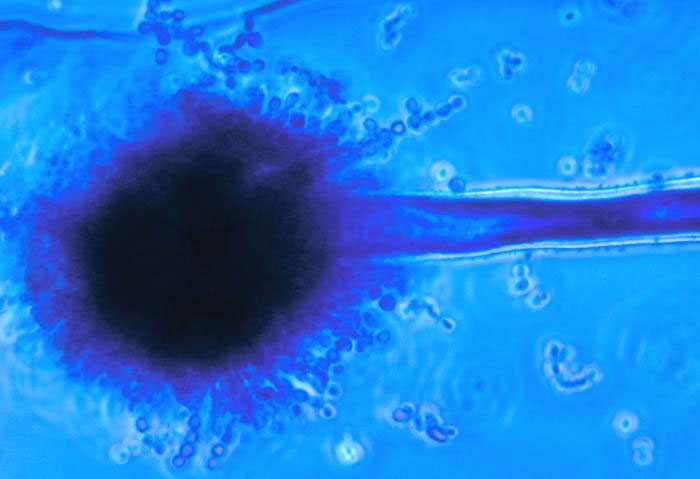Meningitis Outbreak Grows to 169 Cases, 14 Deaths

The number of people with a rare fungal form of meningitis tied to tainted steroid injections is now up to 169, including 14 who have died, the Centers for Disease Control and Prevention said today (Oct. 11).
Health officials also announced the first case of a fungal infection in a joint, rather than the spine, tied to the tainted steroid shots. The patient developed an infection after receiving a steroid shot in the ankle, the CDC said.
A total of 14,000 people may have been exposed to the contaminated steroids, which were produced by the New England Compounding Center in Framingham, Mass. The steroids, which have now been recalled, were shipped to facilities in 23 states, and used starting on May 21.
So far, the CDC has contacted more than 12,000 people who received the recalled steroid shots. These people are being advised to go to their doctor for an evaluation if they develop symptoms of meningitis or joint infection, said J. Todd Weber, chief of the CDC's prevention and response branch.
Symptoms of meningitis include headache, fever, nausea and neurological problems consistent with a stroke. Symptoms of a joint infection include swelling and warmth at the injection site. [5 Meningitis Facts You Need to Know]
Those who have developed meningitis typically showed symptoms within one to four weeks of injection, Weber said. But fungal infections can be slow to develop, and doctors should be vigilant for at least several months after the steroid injection, Weber said.
"We know we are not out of the woods yet," Weber said.
Sign up for the Live Science daily newsletter now
Get the world’s most fascinating discoveries delivered straight to your inbox.
The CDC has confirmed fungal infections in 11 people with meningitis. Of these, 10 were infected with the fungus Exserohilum, and one with the fungus Aspergillus.
This is the first time the fungus Exserohilum has been seen to cause meningitis, Weber said.
"This is new territory for public health and the clinical community," he said.
Because this particular fungus is hard to detect, patients with meningitis might test negative for a fungal infection, but still have the infection, Weber said.
Meningitis is a swelling or inflammation of the membranes that cover the brain and spinal cord (which are called the meninges). Common causes of meningitis are viruses and bacteria, but it can also be caused by fungus or parasites. Fungal meningitis is not contagious.
An investigation of the NECC facility found fungal contamination, according to the Food and Drug Administration. The FDA is now testing the contaminated products to see if the fungus in these products matches the fungus seen in patients, said Deborah Autor, deputy commissioner for global regulatory operations and policy at the FDA.
Another company, Ameridose LLC, which shares ownership with NECC and makes medications for hospitals, has voluntarily ceased operations while it is being investigated by the FDA. So far, there is no evidence to suggest products made by the company are contaminated. .
Pass it on: An outbreak of fungal meningitis has grown to include 169 people in 11 states.
Follow MyHealthNewsDaily on Twitter @MyHealth_MHND. We're also on Facebook & Google+.

Rachael is a Live Science contributor, and was a former channel editor and senior writer for Live Science between 2010 and 2022. She has a master's degree in journalism from New York University's Science, Health and Environmental Reporting Program. She also holds a B.S. in molecular biology and an M.S. in biology from the University of California, San Diego. Her work has appeared in Scienceline, The Washington Post and Scientific American.
Measles has long-term health consequences for kids. Vaccines can prevent all of them.
100% fatal brain disease strikes 3 people in Oregon










